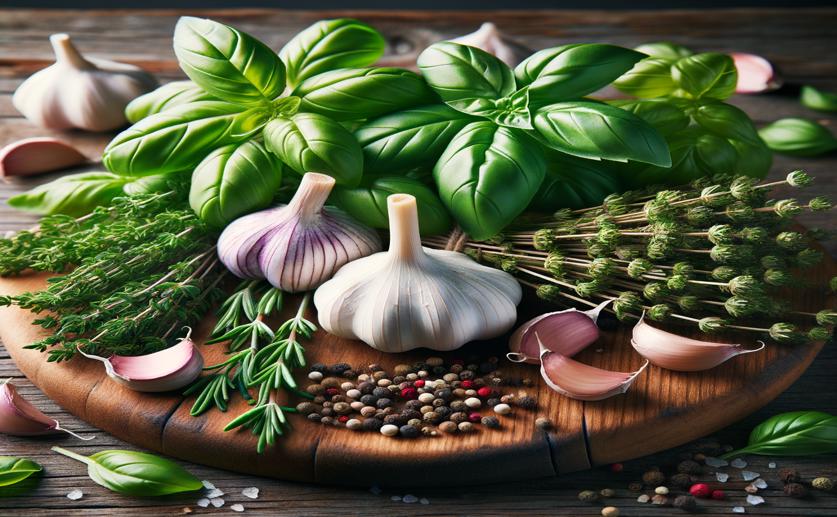
Study Confirms Garlic, Basil, and Thyme Are Promising for Improving Food Safety
Greg Howard
2nd June, 2024

Image Source: Natural Science News, 2024
Key Findings
- The study by Universidad de Córdoba evaluated the antimicrobial potential of Mediterranean plant extracts against common foodborne pathogens
- Garlic extracts were most effective against Bacillus cereus and Staphylococcus aureus, showing strong inhibition and low minimum inhibitory concentrations
- Thyme extracts also demonstrated significant antimicrobial activity against Bacillus cereus, with high inhibition diameters and low minimum inhibitory concentrations
References
Main Study
1) Meta-analysis of antimicrobial activity of Allium, Ocimum, and Thymus spp. confirms their promising application for increasing food safety.
Published 1st June, 2024
https://doi.org/10.1016/j.foodres.2024.114408
Related Studies
2) Controlling foodborne pathogens with natural antimicrobials by biological control and antivirulence strategies.
3) Antibacterial plant compounds, extracts and essential oils: An updated review on their effects and putative mechanisms of action.
4) Tackling Antibiotic Resistance with Compounds of Natural Origin: A Comprehensive Review.



 29th April, 2024 | Greg Howard
29th April, 2024 | Greg Howard